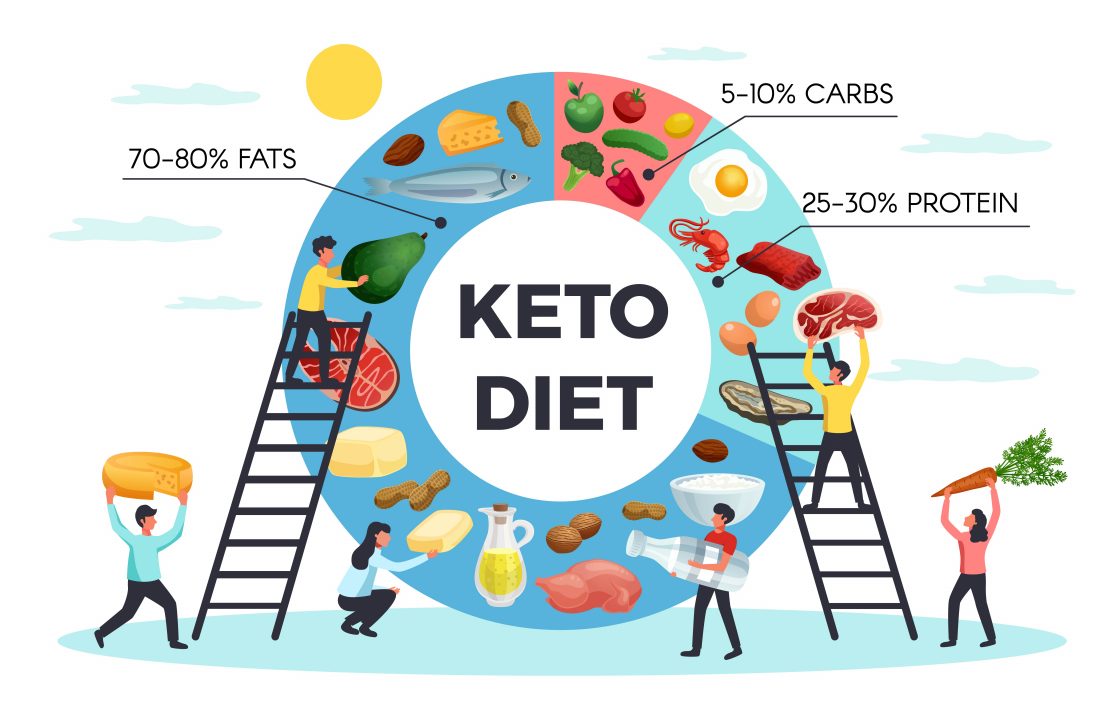Inflammation is a protective mechanism that allows your body to defend itself against infection, illness, or injury. It can also occur on a chronic basis, which can lead to various diseases.
Diet is an essential predictor of circulating levels of inflammatory markers. Diets rich in pro-inflammatory constituents such as saturated fatty acids (SFAs) and trans fatty acids have consistently been associated with proliferation and oxidative stress promoting inflammation. By contrast, polyunsaturated fatty acids (PUFAs), monounsaturated fatty acids (MUFAs), and fiber have been shown to attenuate the inflammatory cascade. Recently, a survey on the inflammatory potential of diet and its influence on obesity and chronic diseases has received special attention.

The dietary inflammatory index (DII) is a novel scoring algorithm that estimates the inflammatory potential of the overall diet based on the inflammatory properties of dietary constituents. Food pattern analysis is a way to investigate the relationship between diet and the risk of chronic diseases. Currently, few studies have studied the association between dietary patterns and dietary inflammatory index (DII). Dietary patterns with more protein, specifically animal protein, may also aggravate glucose metabolism, leading to the development of insulin resistance. Moreover, a body of evidence shows that specific dietary patterns have also been associated with the markers of inflammation.
Some foods contain ingredients that can trigger or worsen inflammation. Sugary or processed foods may do this, while fresh, whole foods are less likely to have this effect.
An anti-inflammatory diet focuses on fresh fruits and vegetables. Many plant-based foods are good sources of antioxidants. Some foods, however, can trigger trusted sources in the formation of free radicals. Examples include foods that people fry in repeatedly heated cooking oil.
Anti-Inflammatory Foods
- Fruits and veggies: Go for variety and lots of colors. Research shows that vitamin K-rich leafy greens like spinach and kale reduce inflammation, as do broccoli and cabbage. So does the substance that gives fruits like cherries, raspberries, and blackberries their color.

- Whole grains: Oatmeal, brown rice, whole-wheat bread, and other unrefined grains tend to be high in fiber, and fiber also may help with inflammation.

- Beans: They are high in fiber, plus they are loaded with antioxidants and other anti-inflammatory substances.
- Nuts: They have a healthy kind of fat that helps stop inflammation. (Olive oil and avocados are also good sources.) Stick to just a handful of nuts a day, or otherwise, the fat and calories will add up.
- Fish: Put it on your plate at least twice a week. Salmon, tuna, and sardines all have plenty of omega-3 fatty acids, which fight inflammation.
- Herbs and spices: They add antioxidants (along with flavor) to your food. Turmeric, found in curry powder, does this with a vital substance called curcumin. Moreover, garlic curbs your body’s ability to make things that boost inflammation.
Inflammatory Foods
Anything highly processed, overly greasy, or super sweet is not a good choice for you if you have inflammation.
- Sweets, cakes and cookies, and soda: They are not dense in nutrients, and they are easy to overeat, which can lead to weight gain, high blood sugar, and high cholesterol (all related to inflammation). Sugar causes your body to release inflammatory messengers called cytokines. Soda and other sweet drinks are the main culprits. Anti-inflammatory diet experts often say you should cut out all added sugars, including agave and honey.
- High-fat and processed red meat (like hot dogs): These have a lot of saturated fat, which can cause inflammation if you get more than a small amount each day.
- Butter, whole milk, and cheese: Again, the problem is saturated fat. Instead, eat low-fat dairy products. They are not considered inflammatory.
- French fries, fried chicken, and other fried foods: Cooking them in vegetable oil does not make them healthy. Corn oil, safflower oil, and other vegetable oils all have omega-6 fatty acids. You need some omega-6s, but if you get too much, you throw off balance between omega-6s and omega-3s in your body and end up with more inflammation.
- Coffee creamers, margarine, and anything else with trans fats: Trans fats (look on the label for “partially hydrogenated oils”) raise LDL cholesterol, which causes inflammation. There is no safe amount to eat, so steer clear.

Conclusion:
The studies suggested that Western dietary patterns, including higher intakes of red meat and sweets, were related to greater BMI and fat mass. In addition, the Healthy pattern with lower intake of Saturated fatty acid and trans-fatty acids led to a significant reduction in the pro-inflammatory markers, i.e., Lipopolysaccharide-binding protein (LBP). Adherence to Traditional dietary patterns rich in fruit and vegetables was inversely related to Dietary inflammatory index and Insulin resistance. Altogether, it seems that dietary patterns can affect systemic inflammation, either directly or indirectly.

References:
https://www.nature.com/articles/s41598-021-86993-7
https://www.nature.com/articles/s41430-021-01039-5




